Advanced EMG testing that pinpoints exactly what’s causing your muscle weakness, numbness, or tingling.
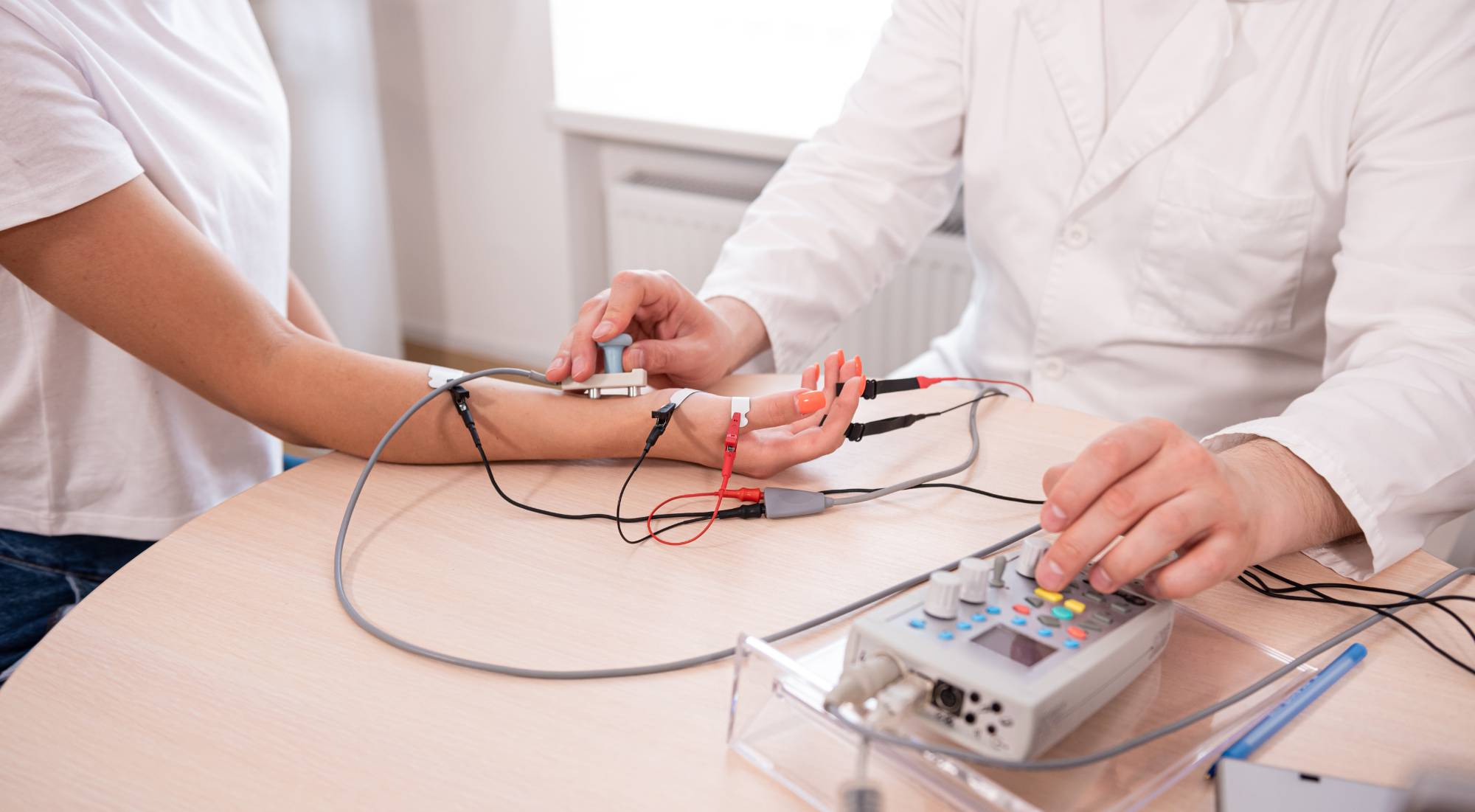
Reviews
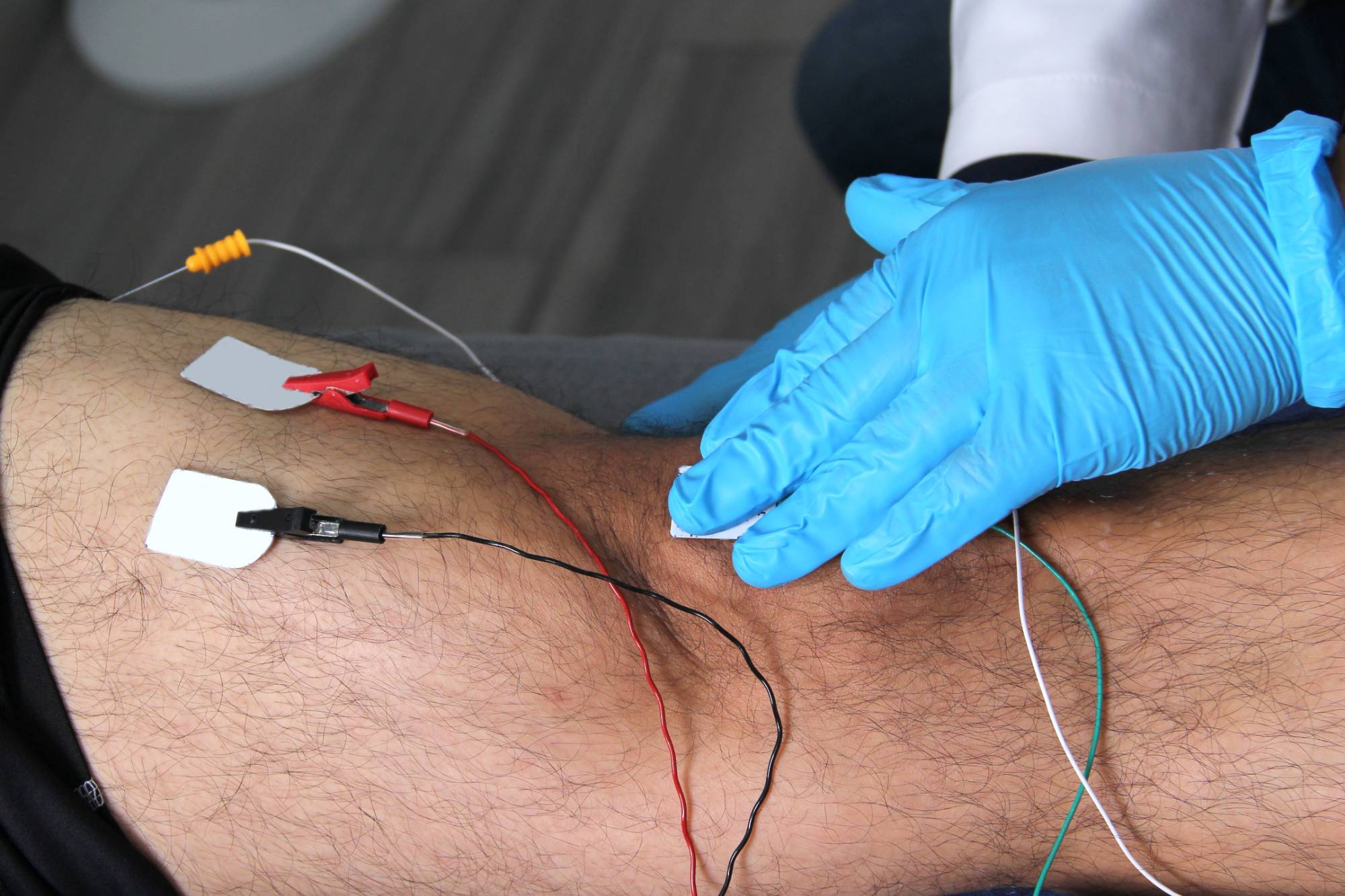
You’ve been dealing with unexplained symptoms long enough. That numbness in your hands, the muscle weakness, the shooting pain down your leg – you need real answers, not more guessing.
EMG testing gives you those answers. This diagnostic procedure measures the electrical activity in your muscles and nerves, revealing exactly where the problem lies. Whether it’s carpal tunnel syndrome, a pinched nerve, diabetic neuropathy, or a muscle disorder, you’ll know for certain.
No more wondering if your symptoms are “all in your head.” No more trying treatments that don’t work because they’re targeting the wrong problem. You get a clear diagnosis that leads to the right treatment plan.
We’ve been serving the Bergen County community with specialized diagnostic testing for years. Our team focuses specifically on spine and nerve-related conditions, which means we see cases like yours every day.
Our physicians are board-certified specialists who understand the complexities of nerve and muscle disorders. We’ve performed thousands of EMG tests and know how to interpret results accurately. You’re not just getting a test – you’re getting expertise that makes the difference between a correct diagnosis and more confusion.
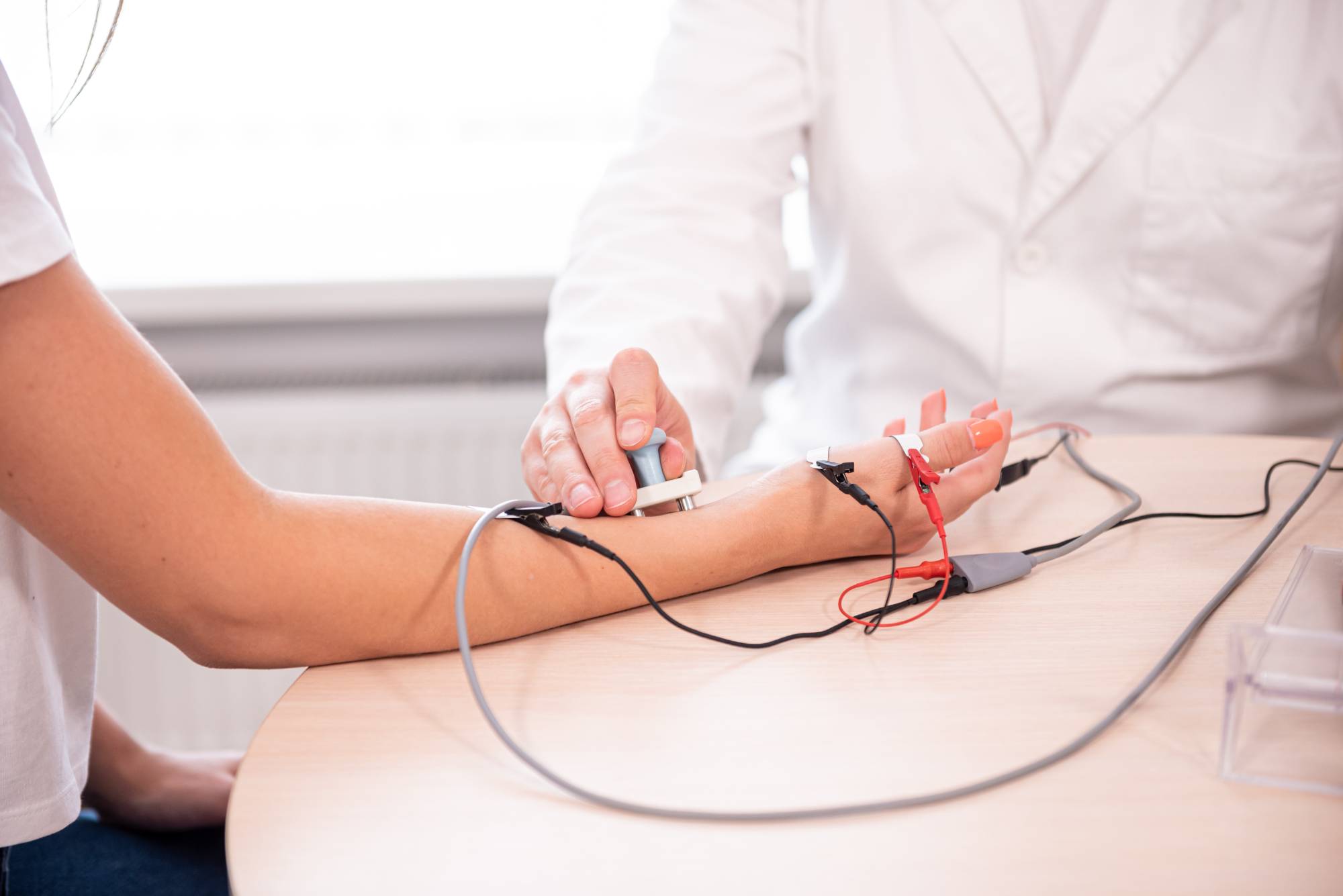
Your EMG test actually involves two parts: nerve conduction studies and electromyography. The entire process typically takes 30-60 minutes, depending on which nerves and muscles need testing.
First, the nerve conduction study uses small electrical pulses to test how well your nerves send signals. Small electrodes are placed on your skin, and you’ll feel brief, mild electrical stimulations. This part measures how fast and strong your nerve signals are.
Next, the electromyography portion uses a thin needle electrode inserted into specific muscles. This measures the electrical activity in your muscles both at rest and when you contract them. Yes, there’s some discomfort, but most patients find it very tolerable.
You’ll get preliminary results right away, with a detailed report following within a few days. The results show exactly which nerves or muscles aren’t functioning properly, giving your doctor the information needed to create an effective treatment plan.
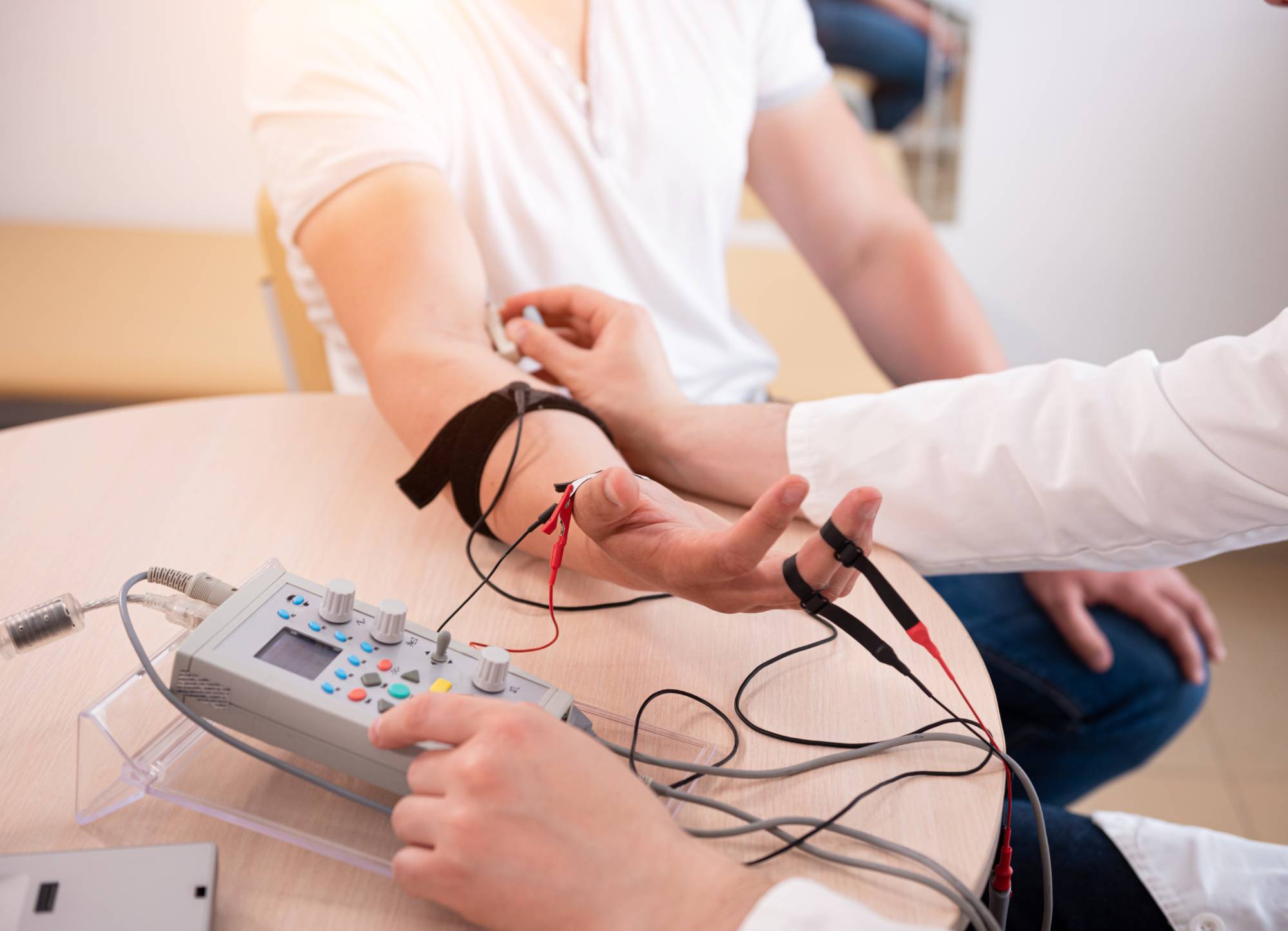
Ready to get started?
Your EMG testing includes both nerve conduction studies and electromyography testing in one appointment. This comprehensive approach ensures nothing gets missed and you don’t need multiple visits for complete results.
The testing covers all major nerve pathways and muscle groups related to your symptoms. Whether you’re dealing with upper extremity issues like carpal tunnel or lower extremity problems like sciatica, the testing protocol is customized to your specific condition.
You’ll receive a detailed written report explaining the findings in terms you can understand, plus specific recommendations for treatment. The results are also sent directly to your referring physician so your care team stays coordinated. Most insurance plans cover EMG testing when medically necessary, and our staff handles prior authorization requirements.
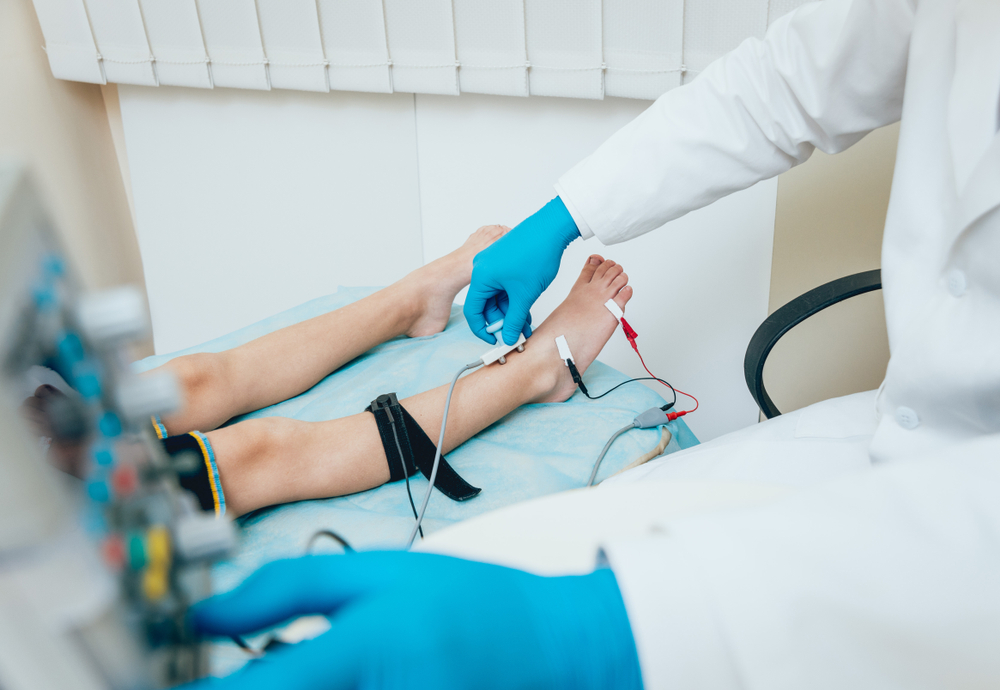
New York:
Florida:
Support